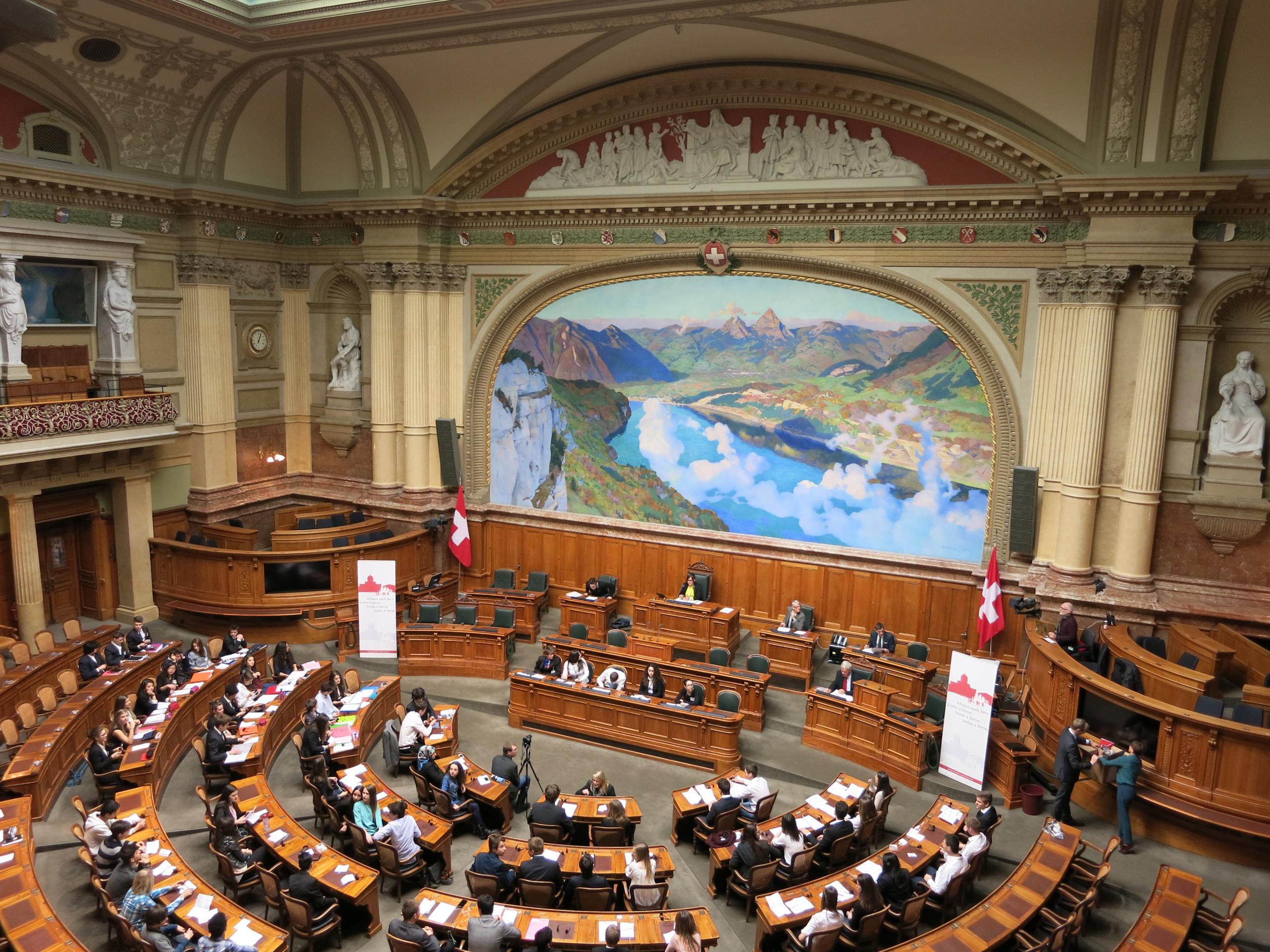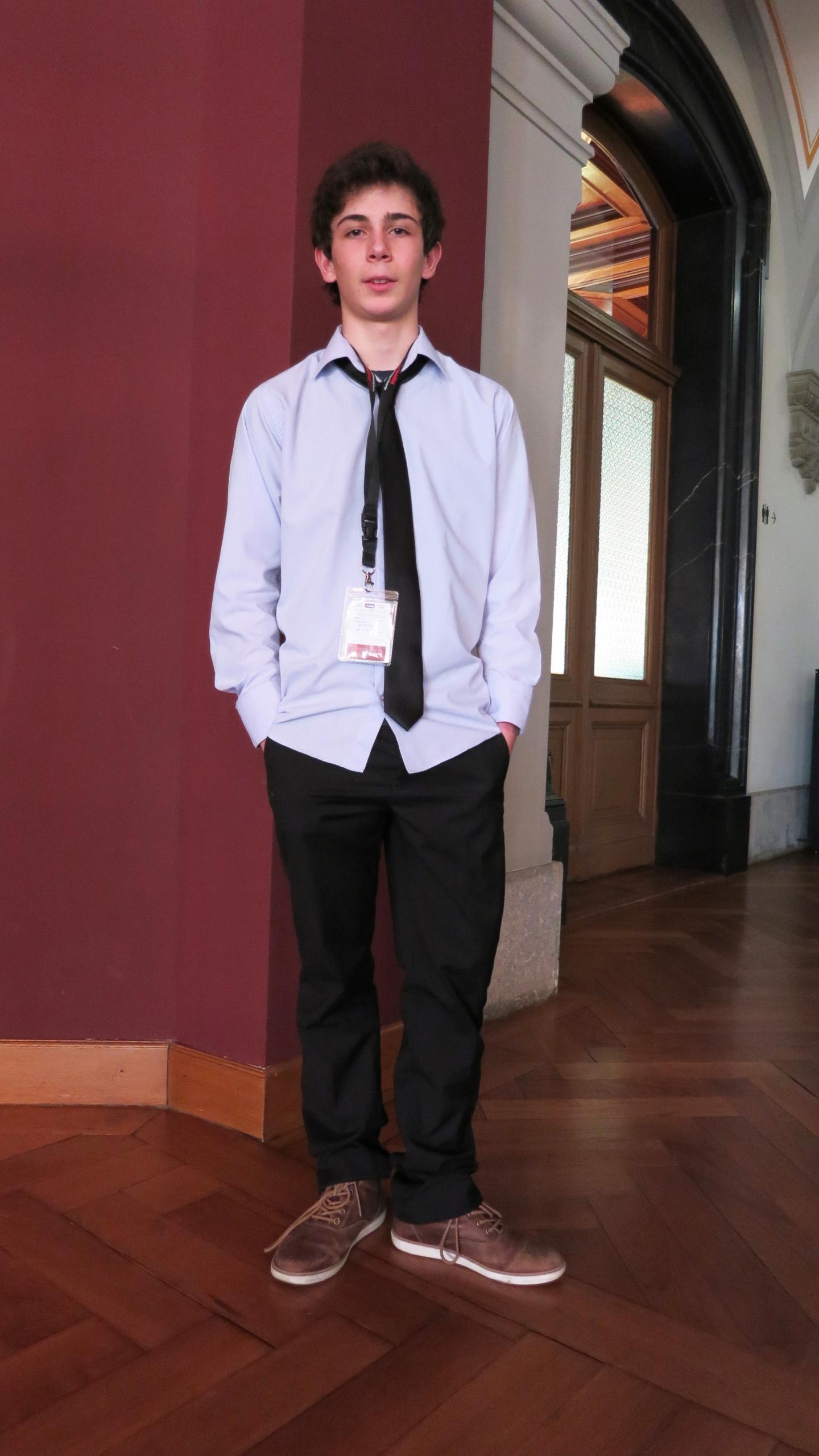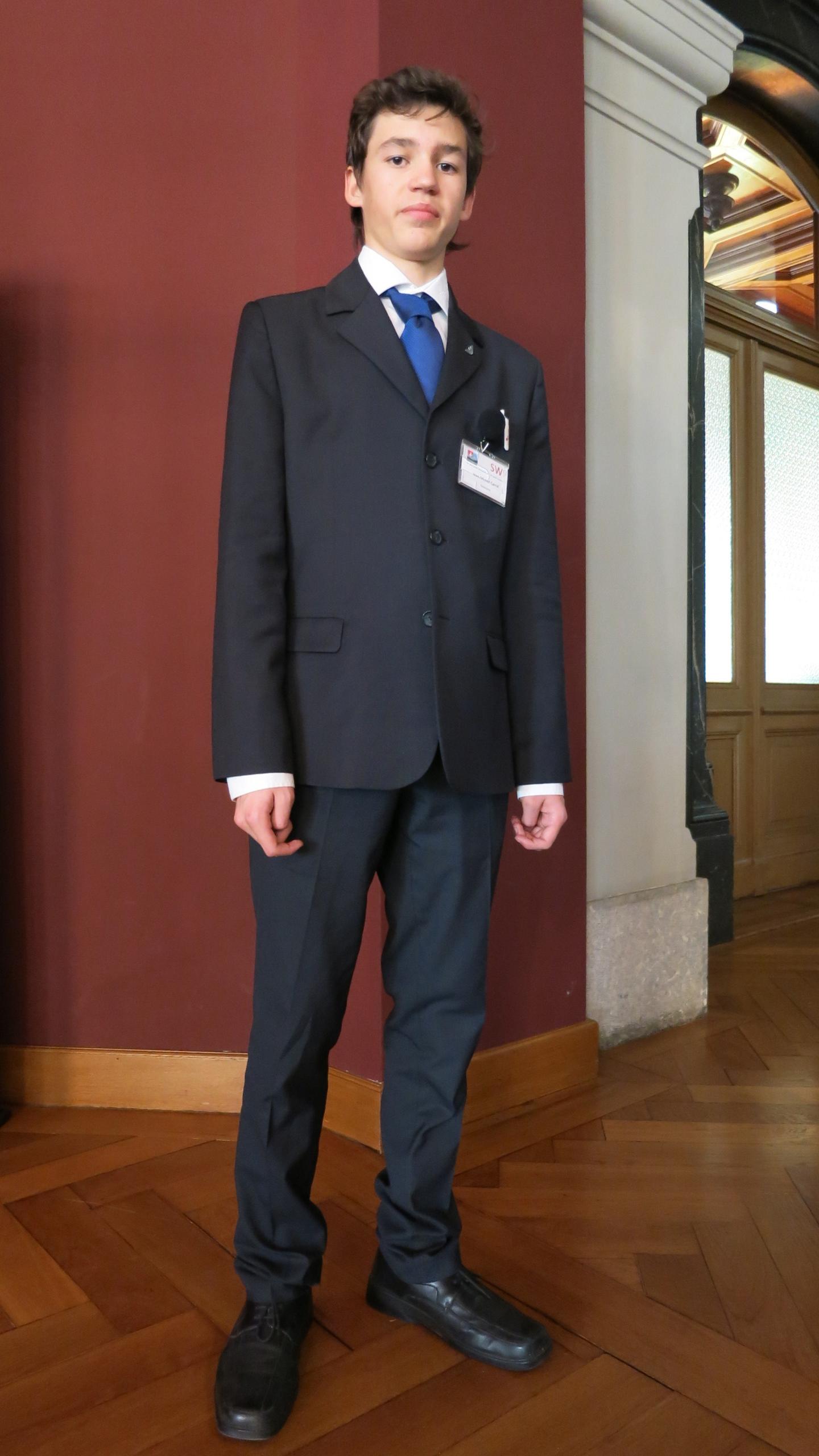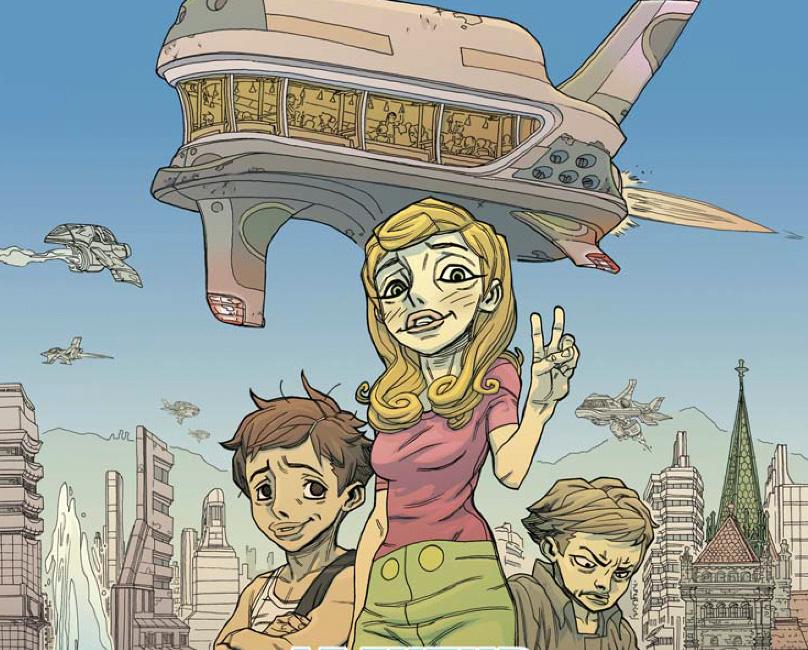Learning by doing

Direct democracy does not arise out of nothing. In politics, as in real life, there are traditions that are handed down from generation to generation. This is particularly true in Switzerland. Now, thanks to a project called Schools to Bern Swiss teenagers can learn about direct democracy and the country’s other political mechanisms through their own experience.
It was a February morning just like any other inside the parliament building – or at least so it seemed. Speakers in the chamber were discussing important matters. However, the chairwoman kept on pushing back her curls, some of the deputies were stammering nervously, and the youthful appearance of all present belied the assumption that these were wise and experienced politicians.
To make sense of this scene one would have to know that this was not a real parliament, but rather the culminating moment of a unique project called Schools to BernExternal link, in which 8th and 9th graders (aged 14 to 15) from different Swiss cantons travel to the country’s political capital and spend a day as members of parliament: speaking from the podium, debating, and defending their points of view.

The Schools to Bern association was founded in April 2008. Politically neutral, independent and non-profit-making, it coordinates inter-cantonal cooperation between secondary schools and receives support from the Federal Chancellery. “Our goal is to get teenagers interested in Switzerland’s political processes and the structure of its political institutions,” explained Dora Andres, the association’s president. Above all, it seeks to do this through methods that are attractive, accessible and as close to reality as possible.
Teaching young people about the basics of direct democracy from an early age is widely recognised as an important task. Confirming this fact, a recent survey by the GfS Bern research and polling institute found that the majority of those polled would welcome efforts to improve the quality of political education in schools.
On that morning in Bern, the Secretary General of the Federal Parliament, Philippe Schwab, welcomed the project participants. He explained to them that, as Winston Churchill put it, democracy is a political system for all, created by everyone together and by each person individually. “The same is true of direct democracy in Switzerland. It is not something that is given, or that just fell out of the sky. It is a very precious and important achievement, which requires daily care and attention, and the more people take part in democratic processes, the better for society as a whole.”
So far this year, the project has brought students to Bern from five schools from both German and French-speaking cantons. They started preparing for the project last September, when they divided themselves into parties or factions, chose a parliamentary chairperson and began drawing up a list of possible draft legislation for discussion in Bern.
“We did everything ourselves: we studied the documents, looked at the statistics and read the relevant parts of the constitution, so as to be able to support our points of view, justify the importance of a particular bill, or, on the contrary, prove why it should be rejected. It took a lot of time,” explained Alan Joss from the Mett-Bözingen high school near Biel.
A place for discussion
After months of preparation, the young parliamentarians spend a week in Bern, where they first hold joint preliminary discussions. There are then interesting meetings with politicians and diplomats; for instance, this time the students were received at the US embassy. Only then do the debates begin in the parliament itself.

“I really enjoyed speaking before the parliament. I think that the longer and the better you talk, the more people are likely to understand you and be convinced by what you say,” said Jean-Michel Carrel, from the secondary school in Riggisberg, outside the capital Bern. Alan Joss also liked being on the podium, although he found it “rather strange and unnerving to be standing before a large audience in the parliament’s historic debating chamber”.
Some students had prepared a handful of statements for the debates, while others had written full-blown speeches complete with quotes and historical references – timed to last a full five minutes in accordance with the limit set in parliamentary regulations.
The “Schools to Bern” project can also be called unique because it runs in parallel in two languages, German and French. The students are therefore “forced” to deal with a language that is not their mother tongue, and they learn more about the mentality and cultural and political characteristics of their compatriots from the other side of the language devide. There are no other Swiss projects quite like it in this field.
‘A project requiring financial support’
Alas, there is a snag: the project suffers from a shortage of funds. Participation costs CHF650 ($645) a week per student, and the compulsory contribution is only CHF200 each – generally covered by the school or community and not the parents. The difference has to be made up by sponsors, in particular the companies and foundations that have supported the project since its inception in 2008.
Among the main expenses are the publication of special teaching materials, travel costs, accommodation, meals, simultaneous translation, insurance, and chaperones. The time spent in the parliament building alone, including payment of the interpreters, technical support and lunch, costs CHF7,000, even though the facilities in the House of Representatives are provided free of charge. Nonetheless, five such working weeks are planned for 2015, but there may simply not be enough money. Yet demand for the project is huge, and there are no free places left in any of these weeks.
As a result, Viola Amherd, an expert on youth policy and parliamentarian of the centrist Christian Democratic Party from canton Valais, has proposed officially declaring “Schools to Bern” to be a project of social importance, “requiring financial support from the government.”
The document was signed by 70 members of parliament from different groups. “We are all united in the opinion that more can and should be done to promote political education. And if we already have a project that works well, we should not abandon it,” said Amherd.
Democracy lives not only in parliament
Parliamentary official Schwab supports the project and hopes that the participants will continue to be politically active afterwards. After all, “democracy is all around us, and not just within the walls of the parliament building”. And the students? What did they learn?
“It’s too early to think about a future in politics, but I did find the project very interesting,” said Jean-Michel Carrel. “After all, we spent nearly half a year preparing for it: we created a party and called it the Socio-Economic Party, we learned how to deal with lobbyists and to establish contacts with other parties. Of course, before the project I already knew more or less how laws were passed, but I had no idea of the details. Now I do.”
Alan Joss also learned a lot, and not only about federalism and direct democracy. “When a referendum is held it all seems so simple: people go to vote on a particular issue. But I never imagined that the process of preparing for the vote could last two years or even more, and that it is done so carefully,” he said.
“I also learned something for myself personally: I love improvising, but now I understand that there are times when you have to prepare more thoroughly before speaking. But I don’t think I will go into politics in the future. After all, some of the topics and discussions are very boring,” he laughed, before adding seriously, “but I will go and vote.”
How does it work?
8th and 9th grade students (aged 14 to 15) can take part in the “Schools to Bern” project. The schools apply to participate.
During the preparatory phase, students learn about the basic features of the Swiss political system using specially designed teaching materials.
A key moment at this stage is the division of the students into “politicians” and “citizens”, who draw up a citizens’ legislative initiative and collect a minimum of 100 signatures.
The “politicians” check the text of the initiative to see that it complies with the constitution.
Parties or factions are then created, which bear no relation to real parties or political movements. A parliamentary chairperson is selected, and a list of possible draft legislation drawn up.
The culminating stage of the project is the “parliamentary week” in Bern, during which the draft legislation is discussed, and meetings are held with parliamentarians, politicians and diplomats.
Source: “Schools to Bern”
Translated from Russian by Julia Bassam

In compliance with the JTI standards
More: SWI swissinfo.ch certified by the Journalism Trust Initiative











You can find an overview of ongoing debates with our journalists here . Please join us!
If you want to start a conversation about a topic raised in this article or want to report factual errors, email us at english@swissinfo.ch.